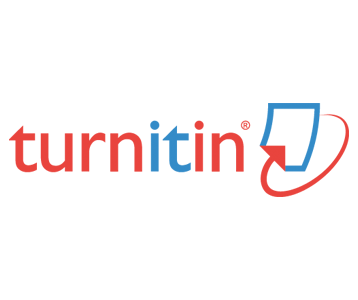The Correlation between Intensity of Social Media Use and The Level of Social Anxiety Students
Abstract
Keywords
Full Text:
PDFReferences
Gunawan H, Anggraeni I, Nurrachmawati A. Hubungan Intensitas Penggunaan Media Sosial dengan Kesehatan Mental Mahasiswa pada Masa Pandemi Covid-19. Prev J Kesehat Masy. 2021;12(2):282–95.
APJII. (2022). Profil Pengguna Internet Indonesia, Asosiasi Penyelenggara Jasa Internet Indonesia.
We Are Social. Indonesia digital report 2022 [Internet]. 2022. Tersedia pada: https://datareportal.com/reports/digital-2022- indonesia
Fadilah AN, Sa’adah N (Universitas INSKY. Hubungan Ketergantungan Media Sosial Generasi Z dengan Kecemasan Sosial. CONS IEDU Islam Guid Couns J. 2021;1(2):95–105.
Azka F, Firdaus DF, Kurniadewi E. Kecemasan Sosial dan Ketergantungan Media Sosial pada Mahasiswa. Psympathic J Ilm Psikol. 2018;5(2):201–10.
Vriends N, Pfaltz MC, Novianti P, Hadiyono J. Taijin Kyofusho and Social Anxiety and Their Clinical Relevance in Indonesia and Switzerland. Fontiers Psychol. 2013;4(February):1–9.
. Yousaf S. The Relation between Self-esteem , Parenting Style and Social Anxiety in Girls. J Educ Pract. 2015;6(1):140–3.
Nguyen, T. H., Rahman, F. F., Ou, J. P., & Wong, W. (2020). Study of Depression, Anxiety, and Social Media Addiction Among Undergrasuate Students. Journal of Management Information and Decision Sciences, 23(4), 1–21. https://www.researchgate.net/publication/344629425
Poon, S. K., & Sudano, L. E. (2020). Impact of social media on mental health. Mental Health in the Athlete: Modern Perspectives and Novel Challenges for the Sports Medicine Provider.
Sert, H. P. (2022). Students ’ increased time spent on social media , and their level of coronavirus anxiety during the pandemic predict increased social media addiction. December 2021, 1–13. https://doi.org/10.1111/hir.12448
Ramadhanti, U. (2020). Pengaruh Kecemasan Sosial Terhadap Social Media Addiction Pada Mahasiswa Psikologi Angkatan 2018-2020 Universitas X Dimasa Pandemi Covid-19 Ulfa Ramadhanti Universitas Muhammadiyah Gresik. Psikosains, 101, 131–144. https://doi.org/http://journal.umg.ac.id/index.php/psikosains/article/view/4590
DOI: https://doi.org/10.35842/formil.v8i2.500
Article Metrics
Abstract view : 330 timesPDF - 105 times
Refbacks
- There are currently no refbacks.







